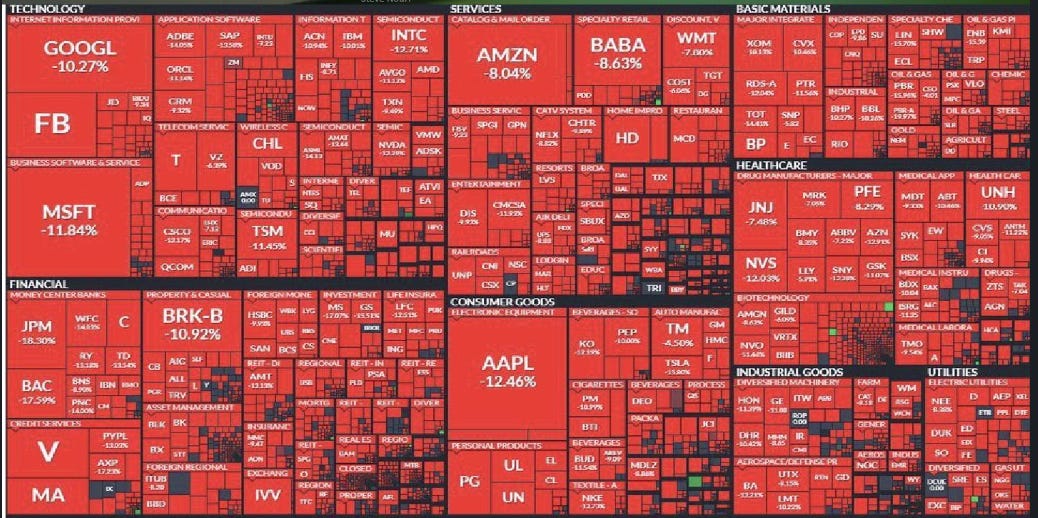🤔Are We Thinking Exponentially Enough About Tech Progress?Plus: But, How can we think Exponentially?Get in Front of 50k Tech Leaders: Grow With Us - Let Us Feature Your Business. Today, we take a quick dive into why we, humans, struggle to think exponentially. Deepseek’s arrival caught many by surprise, but it won’t be the last. As technology advances at an exponential pace, new companies will emerge, building mind-blowing innovations faster, cheaper, and with fewer resources. So, how can we shift our mindset to think exponentially? Let’s dive in!
Are We Thinking Exponentially Enough About Tech Progress?The recent release of DeepSeek's R1 AI model has sent shockwaves through the tech industry and global markets. In just days, the model became the most downloaded application on the Apple Store, outpacing competitors and sparking widespread discussions about the accelerating pace of technological advancement. Unlike previous AI models that required billions of dollars to train, DeepSeek's R1 was developed for less than $6 million—an astonishingly low cost that underscores the exponential nature of technological progress. The impact was immediate. Markets tumbled, losing approximately $2 trillion in value, Nvidia itself lost $500B+, as investors reacted emotionally to the perceived disruption. The open-source nature of DeepSeek's R1 has left many wondering whether the cost barriers that once defined AI development have been permanently dismantled. The most interesting aspect that this event highlights is the lack of understanding that we humans have for exponential growth and exponential thinking over all. And yes, OpenAI says it has evidence China’s DeepSeek used its model to train competitor, even it its true, the exponential growth cant be ignored. We are still attempting to guess what is coming or decipher the future according to what our brains understand of the present and past advacements speeds. In a matter of days, perhaps, OpenAI will relase a new model that surpasses DeepSekk R1, Demis Hassabis, Google’s Deepmind CEO said new processors — known as “light chips” — are in the works that could make it more cost-effective to run the models. Models will continue to get faster, better, and cheaper to create. We may live in a world where anyone with an internet connection and a device could potentially create a very efficient AI model for personal or commercial use for hundreds of dollars. According to Cathie Wood the cots of AI training has been dropping at ~75% per year, the cost of inference, which is more competitive in todays landscape, is dropping at around 85% per year. Hassabis said Google’s approach is unique in that it is building every component of the AI technology stack on its own. “We’re probably the only company that goes from the bare metal, the chips to the data centers,” he said. But Google will very soon not be the only one with this type of vertical stack. Another interesting point to highlight here is that this development comes amidst ongoing U.S. efforts to regulate and force the sale of TikTok’s American operations, citing national security and data privacy concerns. While companies like Oracle and Microsoft vie for ownership of TikTok’s U.S. version, alternative Chinese apps like DeepSeek and others, including Lemonade, are emerging globally. These new platforms also swallow large amounts of sensitive data from its users regardless of their geographic location and will do so faster as their developers now know that they may be regulated out of certain geographic locations. This highlights the unstoppable nature of global innovation regardless of geographic or political barriers. This raises questions about energy demands, a concern that has driven investments in technologies like nuclear fusion and data centers. However, as AI systems grow more efficient, the need for vast amounts of energy could diminish, paving the way for more sustainable development. This moment serves as a reminder: Are we thinking exponentially enough? Innovation is not linear—it accelerates. Emotional reactions, like yesterday’s market crash, often fail to account for the rapid advancements that continually reshape the landscape. Companies like Google, Microsoft, and Meta will inevitably respond with breakthroughs of their own, and new models will surpass today’s disruptions. Instead of reacting emotionally, we need to ask better, more exponential questions. How can we harness these advancements? How can we prepare for the broader societal implications of cheaper, faster, and more efficient technology? And most importantly, how do we stay ahead in an era where innovation has no borders? Let’s focus on what’s to come, not just what’s in front of us. The future will arrive faster than we expect. Looking forward to read your comments. Our Partners:
But, How can we think Exponentially?Key Mindset Shifts
Strategies
Top Resources
Quick Exercises
Shift from thinking step-by-step to leaps and bounds.  📰 AI News and Trends
🌐 Other Tech news
🧰 AI ToolsDownload our list of 750+ Tools free here. What I am reading.Nexus by Yuval Noah Harari examines the interconnectedness of technology, politics, and society, delving into how these dynamics shape the future. It challenges us to rethink our approach to progress and its ethical implications. 🚀 Showcase Your Innovation in the Premier Tech and AI Newsletter (link) As a vanguard in the realm of technology and artificial intelligence, we pride ourselves in delivering cutting-edge insights, AI tools, and in-depth coverage of emerging technologies to over 55,000+ tech CEOs, managers, programmers, entrepreneurs, and enthusiasts. Our readers represent the brightest minds from industry giants such as Tesla, OpenAI, Samsung, IBM, NVIDIA, and countless others. Explore sponsorship possibilities and elevate your brand's presence in the world of tech and AI. Learn more about partnering with us. Disclaimer: We do not give financial advice. Everything we share is the result of our research and our opinions. PLEASE do your own research and make conscious decisions. The web3 space can be highly volatile and risky. |
Wednesday, January 29, 2025
🤔Are We Thinking Exponentially Enough About Tech Progress?
Subscribe to:
Post Comments (Atom)



No comments:
Post a Comment